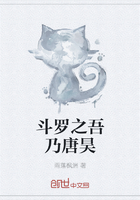"But at the same time he is not at all artistic or affected; he does not CONSTRUCT his letters, he does not revise them, he spends no time in reading them over; we have a first draught, excellent and clear, a jet from the fountain-head, but that is all.The new arguments, which he discovers in support of his ideas and which opposition suggests to him, are an agreeable surprise, and shed a light which we should vainly search for even in his works.His correspondence differs essentially from his books, in that it gives you no uneasiness; it places you in the very heart of the man, explains him to you, and leaves you with an impression of moral esteem and almost of intellectual security.We feel his sincerity.I know of no one to whom he can be more fitly compared in this respect than George Sand, whose correspondence is large, and at the same time full of sincerity.His role and his nature correspond.If he is writing to a young man who unbosoms himself to him in sceptical anxiety, to a young woman who asks him to decide delicate questions of conduct for her, his letter takes the form of a short moral essay, of a father-confessor's advice.Has he perchance attended the theatre (a rare thing for him) to witness one of Ponsart's comedies, or a drama of Charles Edmond's, he feels bound to give an account of his impressions to the friend to whom he is indebted for this pleasure, and his letter becomes a literary and philosophical criticism, full of sense, and like no other.His familiarity is suited to his correspondent; he affects no rudeness.The terms of civility or affection which he employs towards his correspondents are sober, measured, appropriate to each, and honest in their simplicity and cordiality.When he speaks of morals and the family, he seems at times like the patriarchs of the Bible.His command of language is complete, and he never fails to avail himself of it.Now and then a coarse word, a few personalities, too bitter and quite unjust or injurious, will have to be suppressed in printing;time, however, as it passes away, permits many things and renders them inoffensive.Am I right in saying that Proudhon's correspondence, always substantial, will one day be the most accessible and attractive portion of his works?"Almost the whole of Proudhon's real biography is included in his correspondence.Up to 1837, the date of the first letter which we have been able to collect, his life, narrated by Sainte Beuve, from whom we make numerous extracts, may be summed up in a few pages.
Pierre Joseph Proudhon was born on the 15th of January, 1809, in a suburb of Besancon, called Mouillere.His father and mother were employed in the great brewery belonging to M.Renaud.His father, though a cousin of the jurist Proudhon, the celebrated professor in the faculty of Dijon, was a journeyman brewer.His mother, a genuine peasant, was a common servant.She was an orderly person of great good sense; and, as they who knew her say, a superior woman of HEROIC character,--to use the expression of the venerable M.Weiss, the librarian at Besancon.
She it was especially that Proudhon resembled: she and his grandfather Tournesi, the soldier peasant of whom his mother told him, and whose courageous deeds he has described in his work on "Justice." Proudhon, who always felt a great veneration for his mother Catharine, gave her name to the elder of his daughters.
In 1814, when Besancon was blockaded, Mouillere, which stood in front of the walls of the town, was destroyed in the defence of the place; and Proudhon's father established a cooper's shop in a suburb of Battant, called Vignerons.Very honest, but ******-minded and short-sighted, this cooper, the father of five children, of whom Pierre Joseph was the eldest, passed his life in poverty.At eight years of age, Proudhon either made himself useful in the house, or tended the cattle out of doors.No one should fail to read that beautiful and precious page of his work on "Justice," in which he describes the rural sports which he enjoyed when a neatherd.At the age of twelve, he was a cellar-boy in an inn.This, however, did not prevent him from studying.
His mother was greatly aided by M.Renaud, the former owner of the brewery, who had at that time retired from business, and was engaged in the education of his children.
Proudhon entered school as a day-scholar in the sixth class.He was necessarily irregular in his attendance; domestic cares and restraints sometimes kept him from his classes.He succeeded nevertheless in his studies; he showed great perseverance.His family were so poor that they could not afford to furnish him with books; he was obliged to borrow them from his comrades, and copy the text of his lessons.He has himself told us that he was obliged to leave his wooden shoes outside the door, that he might not disturb the classes with his noise; and that, having no hat, he went to school bareheaded.One day, towards the close of his studies, on returning from the distribution of the prizes, loaded with crowns, he found nothing to eat in the house.
"In his eagerness for labor and his thirst for knowledge, Proudhon," says Sainte Beuve, "was not content with the instruction of his teachers.From his twelfth to his fourteenth year, he was a constant frequenter of the town library.














